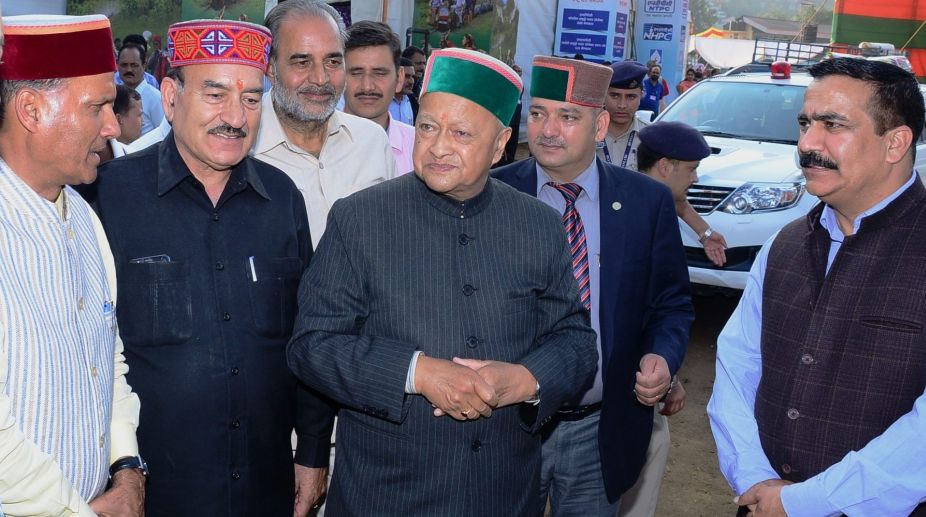Hate speech: BJP leader George seeks time to appear before police
George on Saturday requested the police for an extension until February 24 to appear before them for investigation in connection with the case.

Virbhadra Singh (PHOTO: Facebook)
Though there hasn’t been much hullabaloo over the Dalit vote bank in previous elections when regional and local issues reigned supreme in polls, however, this time, the ‘D’ factor could affect the outcome of elections in Himachal Pradesh.
Just before the scheduled announcement for assembly polls, both the Congress and Bharatiya Janata Party (BJP) made all-out efforts to woo the voters of the community in their favour.
Advertisement
On one hand, Congress party organised Dalit Sammelan at district level across the state to tilt the votes of the community in their favour to counter BJP’s campaign.
Advertisement
Earlier, BJP leaders, who are also keeping a close eye on the vote bank, had organised over 50 Dalit Swabhiman Sammelans across the state till September end.
And in many such conventions, the party leaders made attempts to include families from the community and make them members of the party to show that the vote bank now relies more on the party.
In one such convention in Kullu district, around 700 members of the community had taken membership of the party and the event had created ripples within the Congress party.
Even the chief minister Virbhadra Singh had tried to play the Dalit card while battling incumbency, graft and other odds.
Singh had even proposed to appoint a Dalit as the chief of the HP Congress Committee but his pressure tactics didn’t materialise, though he had skipped AICC’s Dalit conclave which was attended by state chief Sukhvindder Singh Sukku and state incharge Sushil Kumar Shinde.
“The Schedule Caste community has been used as vote bank by all political parties and it is due to these reasons that no prominent Dalit leader has emerged in state politics till date,” Karam Chand Bhatia, a Shimla based Dalit activist said.
The interests of the community has been ignored by both the political parties and whenever an issue of atrocities against the Dalits comes up in the state, no politician or political parties raises the issue for the fear of losing votes of upper castes, he said.
“The leaders of Dalit community should come out forward to protest against the discrimination which is prevalent in the society. But due to lack of any political alternative, the community continues to suffer,” Bhatia said.
“BJP functions on the principal of inclusion of all castes of society and many schemes has been launched by successive governments in the state and Prime Minister Narendra Modi government to end economic disparity,” Mahender Dharmani, the state BJP spokesperson told The Statesman.
The state Congress spokesperson IN Mehta said the party has been working for the welfare of the community after independence and it was their government, which had constituted SC Commission for the first time in the state. “Congress would continue to work for their welfare in the future too,” Mehta told The Statesman.
It is worthwhile to mention here that Dalits constitute nearly 25 per cent of HP’s population and are concentrated in districts like Sirmaur, Kullu, Mandi and Solan.
Of the 17 SC-reserved seats, three each are in Kangra, Mandi and Sirmaur districts, two in Solan and one each in Chamba, Kullu, Shimla, Hamirpur, Una and Bilaspur. With 37 per cent of the BPL families belonging to the SC category, Dalits in HP are poor, backward and distressed.
Advertisement